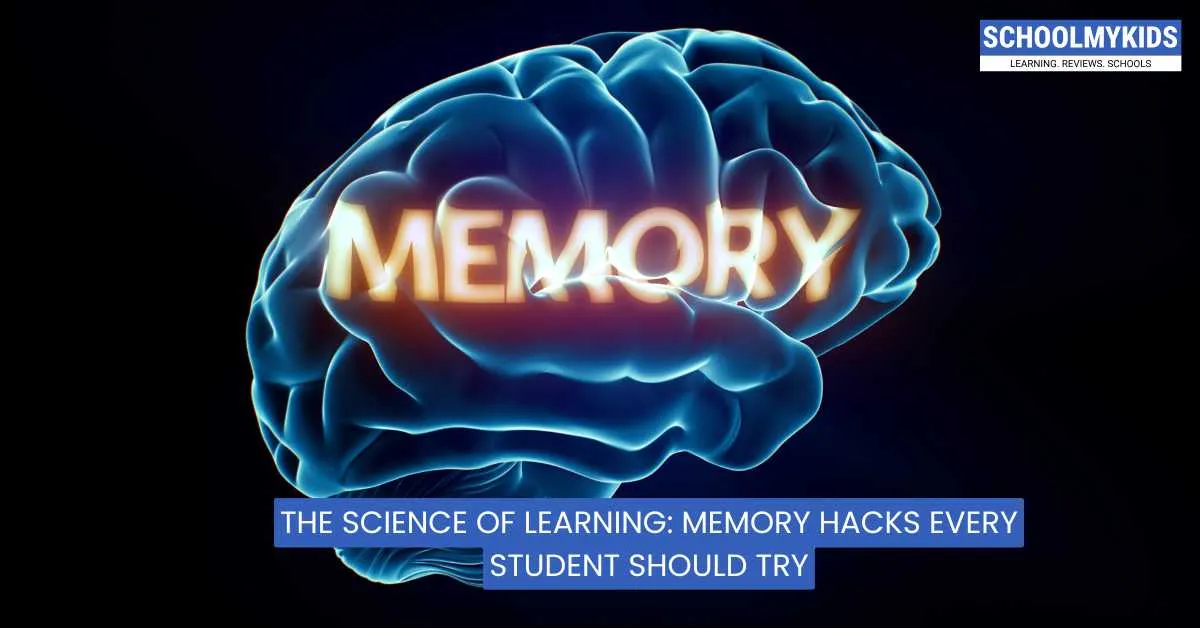Understanding how your brain actually learns and remembers information can revolutionize your academic performance. Modern neuroscience has uncovered specific techniques that work with your brain's natural processes to enhance memory formation, retention, and recall. These evidence-based strategies can help any student learn more effectively and remember information longer.
How Memory Actually Works
Memory isn't a single process but involves three distinct stages: encoding (getting information into your brain), consolidation (strengthening and organizing memories), and retrieval (accessing stored information when needed). Each stage can be optimized through specific techniques backed by cognitive research.
The brain forms memories through neural pathways that strengthen with repetition and meaningful connections. Understanding this process helps explain why certain study methods work better than others and why cramming often fails to produce lasting learning.
Key memory principles include the spacing effect for long-term retention, active recall for strengthening neural pathways, elaborative encoding through meaningful connections, and consolidation during sleep and rest periods.
Active Recall: The Memory Powerhouse
Active recall stands out as the most effective technique for improving memory retention. Instead of passively reviewing notes or highlighting text, this method requires you to actively retrieve information from memory.
Implementation strategies include creating questions from study material and testing yourself regularly, using flashcards for self-assessment, explaining concepts aloud without referring to notes, writing summaries from memory before checking accuracy, and teaching material to others or imaginary audiences.
Studies consistently show that students who practice active recall retain information significantly longer than those who rely on passive review methods. The effort required to retrieve information strengthens memory pathways and identifies knowledge gaps that need attention.
Spaced Repetition: Timing Your Reviews
Spaced repetition leverages the brain's forgetting curve by reviewing information at gradually increasing intervals. This technique prevents forgetting while minimizing study time.
Optimal spacing patterns include initial learning followed by review after one day, second review after three days, third review after one week, and subsequent reviews at two-week intervals. Digital tools like Anki and Quizlet can automate this scheduling, ensuring reviews occur just before information would typically be forgotten.
The key is reviewing material just as you're about to forget it, which strengthens memory traces more effectively than massed practice or cramming.
Visual Memory Techniques
Visual learning activates multiple brain regions simultaneously, creating stronger and more durable memories. Creating diagrams, mind maps, flowcharts, and infographics helps simplify complex information and makes it easier to recall.
Effective visual strategies include drawing mind maps to connect related concepts, using color coding to highlight important information, creating visual timelines for historical or process-based content, designing infographics to summarize key points, and using spatial organization to represent relationships between ideas.
These techniques work because they engage both verbal and visual processing systems, creating multiple retrieval pathways for the same information.
The Power of Elaborative Encoding
Elaborative encoding involves connecting new information to existing knowledge and creating meaningful associations. This process makes memories more distinctive and easier to retrieve.
Elaboration techniques include connecting new concepts to personal experiences, creating analogies and metaphors to explain complex ideas, asking "why" and "how" questions about material, relating information to current events or popular culture, and building bridges between different subjects or topics.
The more connections you create around a piece of information, the more retrieval cues you have available during exams or practical application.
Interleaving: Mixing It Up for Better Learning
Interleaving involves studying different topics or problem types in mixed sequences rather than focusing on one subject for extended periods. This technique improves discrimination between concepts and enhances transfer to new situations.
Practical interleaving includes alternating between different math problem types during practice, mixing historical periods when studying history, switching between languages when learning vocabulary, combining different scientific concepts in single study sessions, and rotating between various subjects during extended study periods.
While interleaving feels more challenging than blocked practice, research consistently shows superior long-term learning and application.
The Testing Effect
Frequent low-stakes testing enhances learning more than additional study time. The act of retrieval itself strengthens memory and identifies areas needing more attention.
Testing strategies include taking practice tests under realistic conditions, creating your own exam questions, using past exam papers for practice, forming study groups for mutual questioning, and implementing regular self-assessment throughout learning.
The key is treating tests as learning opportunities rather than just assessment tools.
Sleep and Memory Consolidation
Sleep plays a crucial role in memory consolidation, transferring information from temporary to long-term storage. Understanding this process can optimize your study schedule for maximum retention.
Sleep optimization for learning includes studying difficult material before sleep, maintaining consistent sleep schedules, avoiding all-nighters before important exams, taking strategic naps after intensive learning sessions, and creating quiet, dark sleep environments for optimal consolidation.
Research shows that sleep deprivation significantly impairs memory formation and recall, making adequate rest essential for academic success.
Environmental and Contextual Cues
The environment where you learn becomes associated with the information, creating additional retrieval cues. Varying study locations and contexts can strengthen memory flexibility.
Context optimization includes studying in multiple locations to avoid context dependence, matching practice conditions to test conditions when possible, using background music or scents consistently during study, creating visual or physical cues associated with specific subjects, and practicing recall in various environmental conditions.
Nutrition and Exercise for Memory
Physical health directly impacts cognitive function and memory performance. Proper nutrition and regular exercise support brain health and learning capacity.
Brain-healthy habits include maintaining stable blood sugar through regular, balanced meals, staying hydrated throughout study sessions, incorporating omega-3 fatty acids for brain health, taking regular exercise breaks to enhance cognitive function, and limiting caffeine and alcohol consumption.
Building Your Personal Memory System
Effective memory enhancement requires combining multiple techniques into a coherent system tailored to your learning style and subject matter. The key is consistent application and gradual refinement based on results.
System development includes identifying which techniques work best for different subjects, creating study schedules that incorporate spacing and interleaving, developing consistent review routines, tracking progress and adjusting strategies, and maintaining a long-term perspective on skill development.
The goal isn't to use every technique simultaneously, but to build a personalized toolkit of evidence-based strategies that enhance your natural learning processes.
Remember, these techniques require initial investment in learning and practice, but the payoff in improved academic performance and reduced study stress makes the effort worthwhile. The science of learning provides a roadmap for more effective studying – the choice is whether to follow it.









Be the first one to comment on this story.